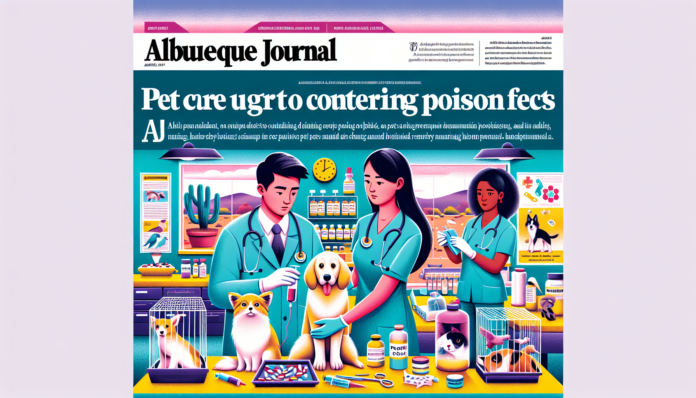Pet Care: A Race to Reverse the Effects of a Poison
In recent years, the issue of pet poisoning has gained significant attention, highlighting the urgent need for effective treatments and preventive measures. The alarming rise in cases of pets being exposed to toxic substances has prompted veterinarians, researchers, and pet owners alike to seek solutions. This article delves into the complexities of pet poisoning, the race to develop antidotes, and the importance of awareness and prevention in safeguarding our furry companions.
Understanding Pet Poisoning
Pet poisoning can occur from various sources, including household chemicals, plants, human foods, and medications. Common culprits include chocolate, grapes, xylitol (a sugar substitute), and certain plants like lilies and azaleas. Symptoms of poisoning can range from mild gastrointestinal upset to severe neurological issues and even death, depending on the toxin involved and the amount ingested.
Veterinarians play a crucial role in diagnosing and treating poisoned pets. They often rely on a combination of clinical signs, history of exposure, and laboratory tests to determine the best course of action. However, the rapid identification of the specific poison is essential for effective treatment, making it a race against time.
The Need for Antidotes
While some poisons have established antidotes, many do not. This gap in available treatments has led to a surge in research aimed at developing effective antidotes for various toxins. For instance, the development of activated charcoal as a treatment for certain types of poisoning has been a significant advancement. Activated charcoal can absorb toxins in the gastrointestinal tract, preventing further absorption into the bloodstream.
However, the complexity of toxins means that a one-size-fits-all approach is often insufficient. Researchers are now focusing on creating targeted antidotes that can neutralize specific poisons. This endeavor requires extensive research, funding, and collaboration between veterinary professionals and toxicologists.
Innovations in Treatment
Recent advancements in veterinary medicine have paved the way for innovative treatments for poisoned pets. One promising area of research involves the use of monoclonal antibodies, which can be engineered to bind to specific toxins and neutralize their effects. This approach has shown potential in treating certain types of snake bites and could be adapted for other poisons as well.
Additionally, the development of new diagnostic tools is enhancing veterinarians’ ability to quickly identify toxins. Rapid testing kits that can detect specific poisons in a pet’s system are becoming more accessible, allowing for timely intervention and treatment.
The Role of Pet Owners
Pet owners play a vital role in preventing poisoning incidents. Awareness of common household toxins and the signs of poisoning can make a significant difference in outcomes. Educating pet owners about the dangers of certain foods, plants, and chemicals is essential. Furthermore, keeping potentially harmful substances out of reach and using pet-safe alternatives can help reduce the risk of accidental poisoning.
In cases of suspected poisoning, immediate action is crucial. Pet owners should contact their veterinarian or an emergency animal poison control hotline as soon as possible. Quick response can often mean the difference between life and death for a poisoned pet.
Conclusion
The race to reverse the effects of pet poisoning is ongoing, driven by the need for effective treatments and preventive measures. As research continues to advance, the hope is that more targeted antidotes will become available, providing veterinarians with the tools they need to save lives. In the meantime, pet owners must remain vigilant, informed, and proactive in protecting their beloved companions from the dangers of poisoning. By fostering a culture of awareness and responsibility, we can work together to ensure a safer environment for our pets.
